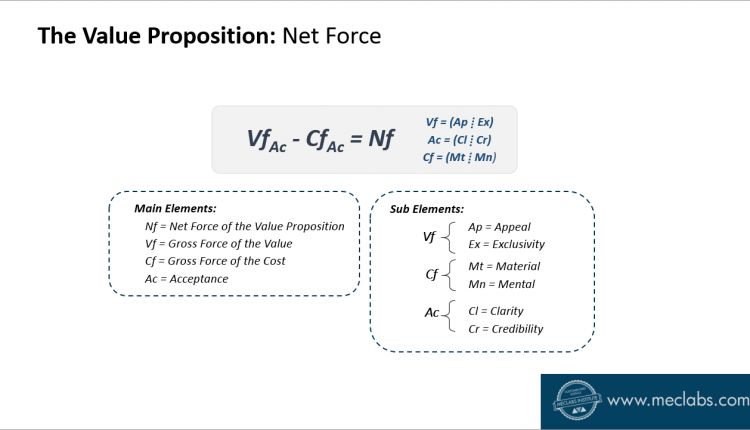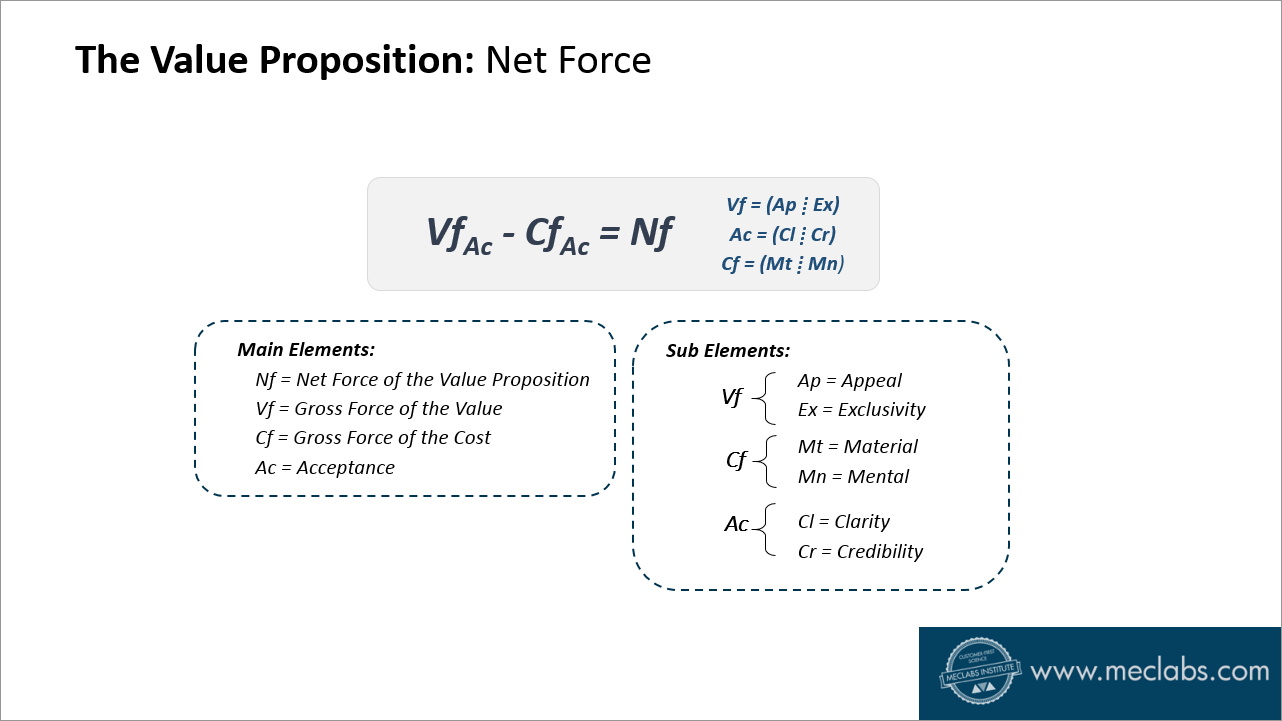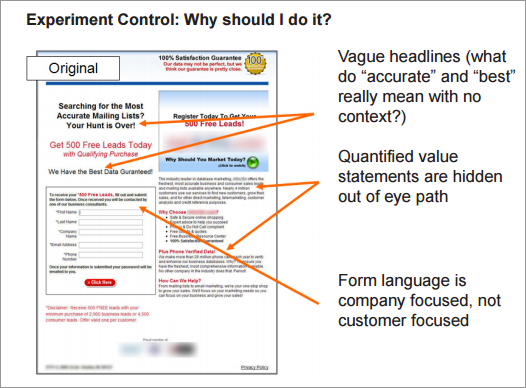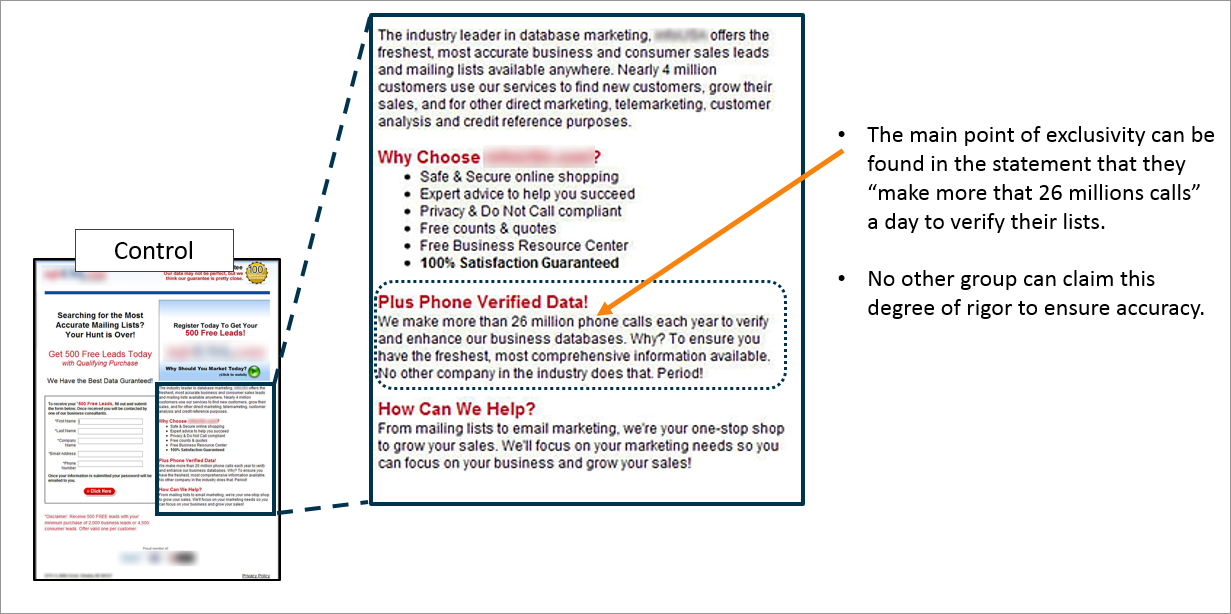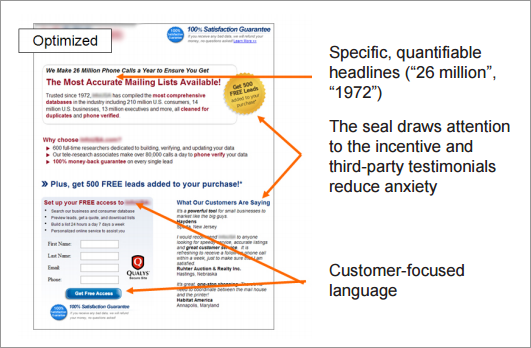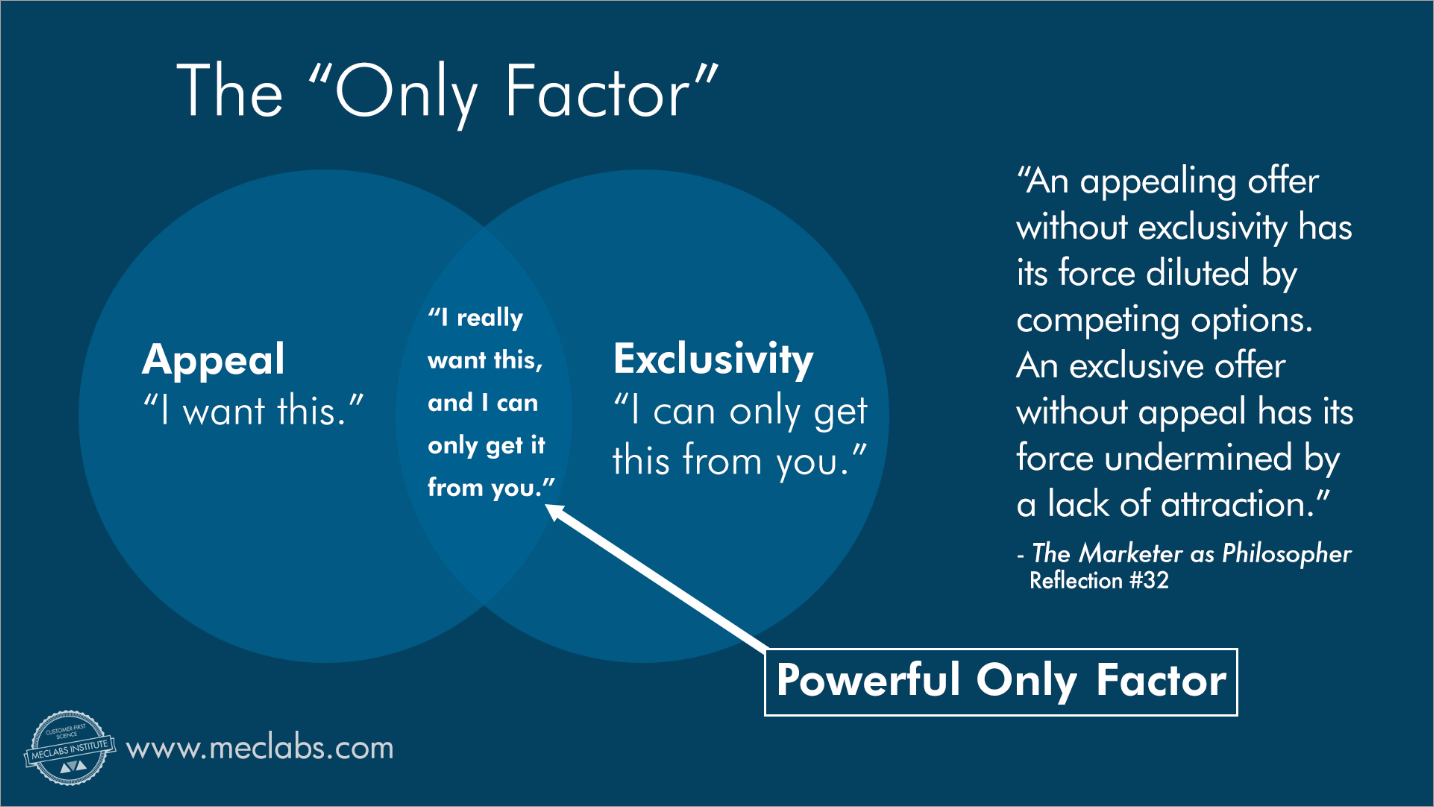“Unicorn.” If you read the business press these days, it is a term you simply can’t avoid. The analogy of a mythical creature to describe a very real phenomenon — the startup that has reached a valuation of at least $1 billion.
So what makes or breaks a startup? Why do some succeed magnificently while so many simply fizzle out?
There are many answers to that question, but one key element that unicorns have in common is an effective value proposition. On the flip side, venture capitalist David Skok wrote that one of the reasons startups fail is, “There is not a compelling enough value proposition, or compelling event, to cause the buyer to actually commit to purchasing.”
To help you create an effective value proposition, MECLABS Institute (parent research organization of MarketingExperiments) has created the Value Proposition heuristic. This patented heuristic is a thought tool, meant to help you optimize the factors that increase the force of your value proposition.
One key element that helps create a successful value proposition is the exclusivity of the product or the offer (denoted by “Ex” in the heuristic).
Exclusivity in product and service development
I was listening to the Re/code Decode podcast, and host Kara Swisher asked, “Were you wondering why Buzzfeed hadn’t done this? Or someone else?”
Stop here. Before I get to the interviewee’s response, consider this.
One of the reasons startups fail according to Steve Tobak, who runs Silicon Valley-based Invisor Consulting, is that “competitors with existing solutions don’t give up so easily.” And according to a post-mortem of 135 failed startups by CG Insights, the top reasons for failing were clustered in the category of “Arrogance.”
All pointing to the need to create products with an element of real exclusivity in order to be successful.
So I was glad to hear this response to Kara Swisher’s question from Dev Flaherty, co-founder, The List App — “I did, and I did my homework, and we looked at a bunch of products that tried to do related things. There wasn’t any close parallel though.”
Exclusivity in product and service offers
Fundamentally, you want to be like Dev and create products from the ground up with exclusivity, to help build a strong value proposition.
But you also want to make sure you message that exclusivity through your offers in your marketing and advertising, because marketers often do not have full control over the products they promote. And even when the exclusivity is clearly baked into the product, it is not always clearly communicated to the customer.
For example, in an experiment run by MECLABS Institute with a mailing list company, the optimization team found that many of the claims in the offer were very vague, and did not communicate any aspects of exclusivity.
However, the main point of exclusivity was there. It was just buried in the copy.
The MECLABS research team brought out the exclusivity more clearly to potentials customers in an optimized treatment.
The result — a 201% increase in conversion.
Exclusivity in balance
“Exclusivity is very difficult to achieve in an appealing way. You may be so exclusive that no one else is interested. Most customers want what everyone else wants,” Kylie Hyer, Curriculum Design Manager, MECLABS Institute, said.
Of course, exclusivity isn’t the sole factor that creates a value proposition. As you can see in the above heuristic, exclusivity must be coupled with appeal.
That overlap in customer perception — wanting a product that can only be attained from your company — creates a powerful “only factor” that helps power an effective value proposition.
How to create forceful value propositions with exclusivity
To sum it up, here are a few key ways to leverage the power of exclusivity:
- Conduct a competitive analysis of competing products — what value they offer and how they message that value through marketing, websites and other means to potential customers. What is similar to your product? In what areas does your product excel that competitors have overlooked?
- Dial down the hype, and get a good understanding of what exclusive value you can communicate to potential customers. As the example above illustrated, sometimes that value already exists in your company’s marketing and website, it’s just buried. Talk to product development. Engineers. Look at actual product specs. Explore the company’s history. Understand why the product was developed to begin with, what need it served.
Once you look past the hype and focus on clearly communicating value, you may find exclusivity in a surprising place. My favorite example comes from Denny Hatch, who was sold by the exclusivity communicated in Amar G. Bose’s obituary by Glenn Rifkin in The New York Times.
- There are many Value Focuses that could comprise your value proposition. Test to learn what Value Focuses are most appealing to your potential customers.
- Be realistic. You can split hairs to try to create exclusivity. But is your audience really going to buy it? You don’t want to end up like Vince Vaughan’s character in The Internship. (Other guy: “That’s Instagram. It already exists.” Vince Vaughan’s character: “Oh, no, no, no. My idea is very different than that.”)
You can follow Daniel Burstein, Director of Editorial Content, MECLABS Institute, @DanielBurstein.
You might also like
Boost Your Online Ads: Strengthen your value proposition by focusing on your “only factor” (interactive Research Brief)
Value Proposition Development online course [From MECLABS, MarketingExperiments’ parent company]



